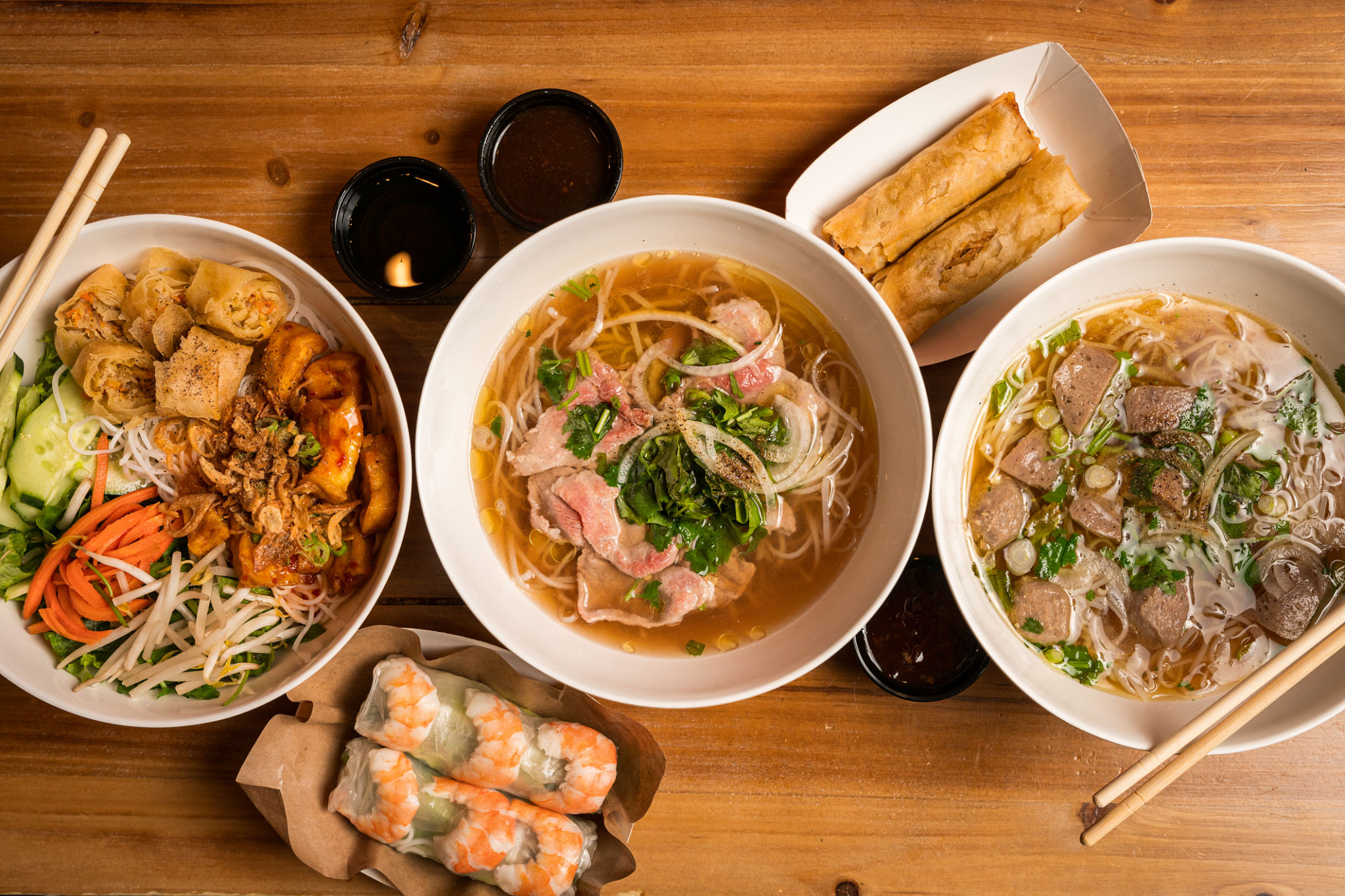Myth-Busting: Common Misconceptions About Vietnamese Cuisine
Introduction to Vietnamese Cuisine
Vietnamese cuisine is renowned for its vibrant flavors and fresh ingredients, yet it remains a subject of many misconceptions. These misunderstandings often overshadow the true essence of this delightful culinary tradition. Let's debunk some of the most common myths about Vietnamese cuisine.

Myth: Vietnamese Food is Always Spicy
One of the most widespread myths is that Vietnamese food is inherently spicy. While some dishes do incorporate chili, the overall cuisine is more about balance. The use of herbs like mint, cilantro, and basil often adds freshness, while ingredients like lime and fish sauce contribute to a complex flavor profile without overwhelming heat.
In fact, many Vietnamese dishes are mild, allowing diners to adjust the spice level to their preference. For instance, the famous Phở is typically served with chili on the side, giving you the option to add as much or as little as you like.
Myth: All Vietnamese Dishes Contain Fish Sauce
Fish sauce is indeed a staple in Vietnamese cooking, but it's not present in every dish. Many recipes, especially vegetarian or vegan ones, rely on alternatives like soy sauce or mushroom seasoning to achieve umami flavors. Dishes such as Bánh Mì can be made with or without fish sauce, making them versatile and accessible to various dietary preferences.

Myth: Vietnamese Cuisine is Just About Spring Rolls and Phở
While spring rolls and Phở are iconic, they represent just a fraction of Vietnam's culinary diversity. The country boasts a rich array of regional dishes, each with its own unique ingredients and flavors. From the savory Bún Chả of Hanoi to the sweet and spicy Cao Lầu of Hội An, there is much more to explore.
Vietnamese cuisine is also noted for its street food culture, offering an ever-changing menu influenced by local ingredients and traditions.

Myth: Vietnamese Food is Unhealthy
Another common misconception is that Vietnamese food is unhealthy due to the use of oils and sauces. In reality, Vietnamese cuisine emphasizes fresh vegetables, lean proteins, and broth-based soups. The traditional diet is balanced and nutritious, often incorporating a wide range of vegetables and herbs.
Many dishes are steamed or grilled rather than fried, and portion sizes are typically moderate, contributing to a well-rounded and healthy meal.
Myth: It's Difficult to Cook Vietnamese Food at Home
Some believe that Vietnamese cuisine is challenging to recreate at home due to its depth of flavor. However, many dishes are straightforward and require only a few fresh ingredients. With the right recipes and a bit of practice, anyone can enjoy authentic Vietnamese flavors in their own kitchen.
Cooking Vietnamese food can be a rewarding experience, offering a chance to experiment with different textures and tastes while embracing a culinary tradition rooted in simplicity and freshness.

Conclusion: Embracing the True Essence of Vietnamese Cuisine
By debunking these myths, we open the door to a more authentic understanding of Vietnamese cuisine. It's a culinary landscape rich in flavor, diversity, and history, inviting everyone to explore its many facets. Whether you're a seasoned fan or new to Vietnamese food, there's always something new to discover and enjoy.